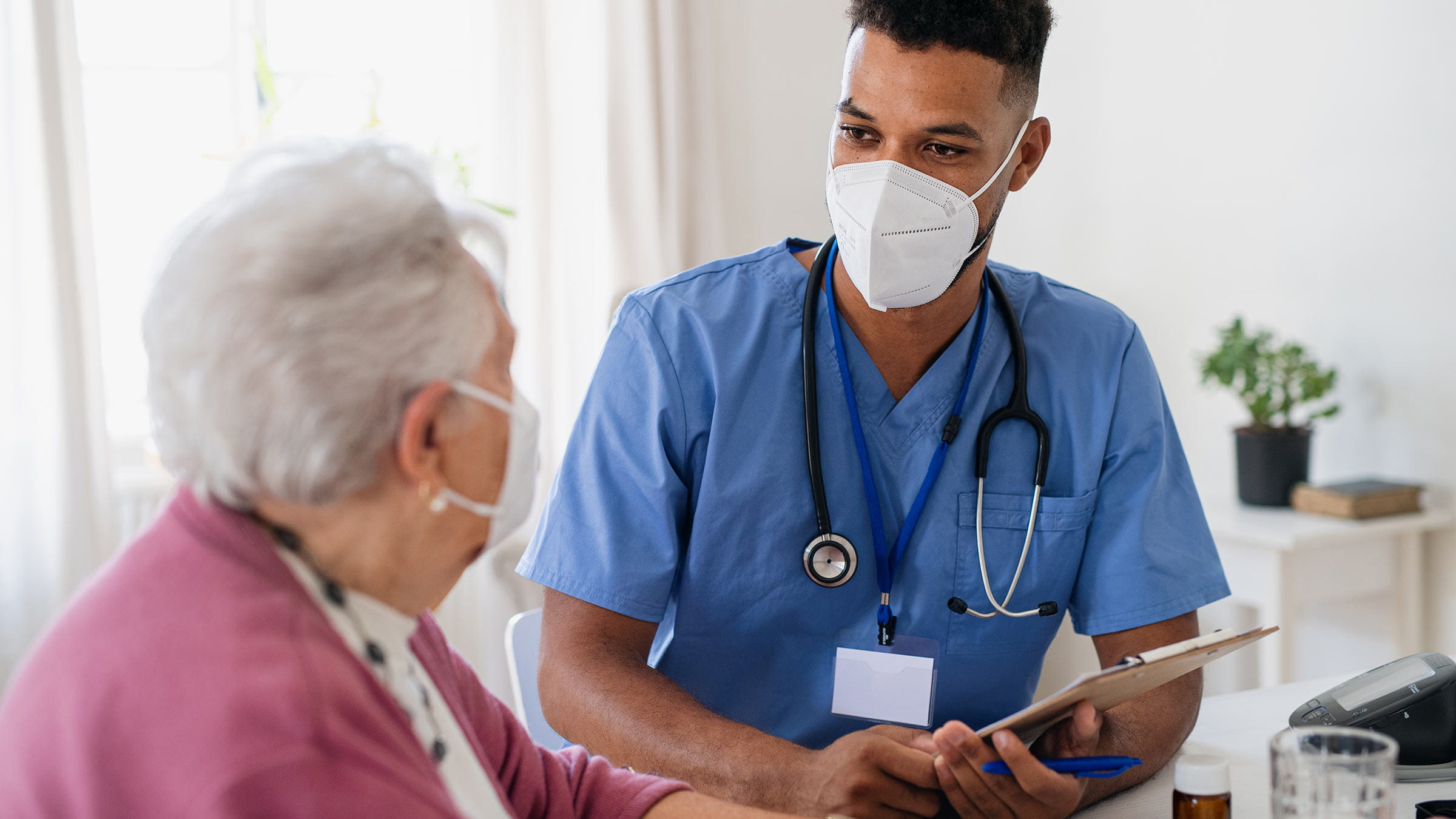
Editor’s note: As what we know about COVID-19 evolves, so could the information in this story. Find our most recent COVID-19 articles here and learn the latest in COVID-19 prevention at the Centers for Disease Control and Prevention. Some photos and videos on this site were filmed prior to the COVID-19 outbreak or may not reflect current physical distancing and/or masking guidelines.
COVID-19 will be with us for quite some time. And while vaccines, boosters, good hygiene and public health practices go a long way in preventing the disease, the reality is that many of us will contract COVID-19 at some point. And even if you have already had COVID-19, you could get it again.
So, what can you do to be ready in case that happens? Be proactive: Learn about the various types of treatments available for COVID-19, and speak with your health care provider to help determine the best course of action if you do become infected. This may save valuable time and reduce stress when you’re faced with a positive COVID-19 test or diagnosis.
Here is a brief overview of some of the outpatient treatments for people who have been diagnosed with or tested positive for COVID-19, especially for those at high risk of getting severely ill. The goal of these treatments is to clear the infection and prevent serious illness and hospitalization. All of the drugs are prescribed under an emergency use authorization from the U.S. Food and Drug Administration. Your health care provider will consider many things in deciding whether or not to prescribe one of these treatments for you.
Paxlovid (nirmatrelvir and ritonavir co-packaged tablets)
Who it’s for: Adults and some children who have mild to moderate symptoms and are at high risk for getting severe disease.
Administration: Pills are taken twice a day for five days. It should be started as soon as possible after diagnosis and within five days of when symptoms began.
Common side effects: Altered sense of taste, diarrhea, high blood pressure and muscle aches. Allergic reactions can also occur.
Additional considerations:
- Your health care provider will consider other medications and supplements you’re taking when deciding if this treatment is right for you.
- In a small number of people, rebound symptoms of COVID-19 occur after treatment is completed.
Effectiveness: In a clinical trial, people taking Paxlovid had a significantly reduced rate of being hospitalized or dying from COVID-19, compared with those who did not take the drug.
For more information:
Veklury (remdesivir)
Who it’s for: Adults and some children who have mild to moderate symptoms and are not hospitalized.
Administration: The drug is given three days in a row by IV, through a needle inserted into a vein, usually in the arm. The drug should be started within seven days of when symptoms began. Patients should remain in the clinic or infusion center for at least one hour following each administration to monitor for allergic reactions.
Common side effects: Nausea, elevated liver enzymes, changes to blood clotting tests and allergic reactions.
Additional considerations: Remdesivir may be given to pregnant individuals if clinically indicated.
Effectiveness: In clinical trials, people given remdesivir generally had less severe COVID-19 and fewer hospitalizations, compared with people who were not given the drug.
For more information:
Lagevrio (molnupiravir) capsules
Who it’s for: Adults who are at high risk for severe disease, and for whom other treatment options are not appropriate or available.
Administration: Capsules are taken by mouth every 12 hours for five days.
Common side effects: Diarrhea, nausea and dizziness.
Additional considerations:
- Capsules should not be taken if you are pregnant or lactating.
- People of child-bearing age should follow their health care providers’ recommendations about contraception while taking this medicine.
- Allergic reactions may occur.
Effectiveness: In clinical trials, people using this medication had reduced risk of hospitalization and death from COVID-19, compared with those who did not use the drug.
For more information:
These are the most current options for you and your health care provider to consider when deciding on the most appropriate treatment for a COVID-19 infection. Discussing these options before getting COVID-19 is one way to increase your chances of starting treatment as soon as possible, which is key to preventing serious illness.






